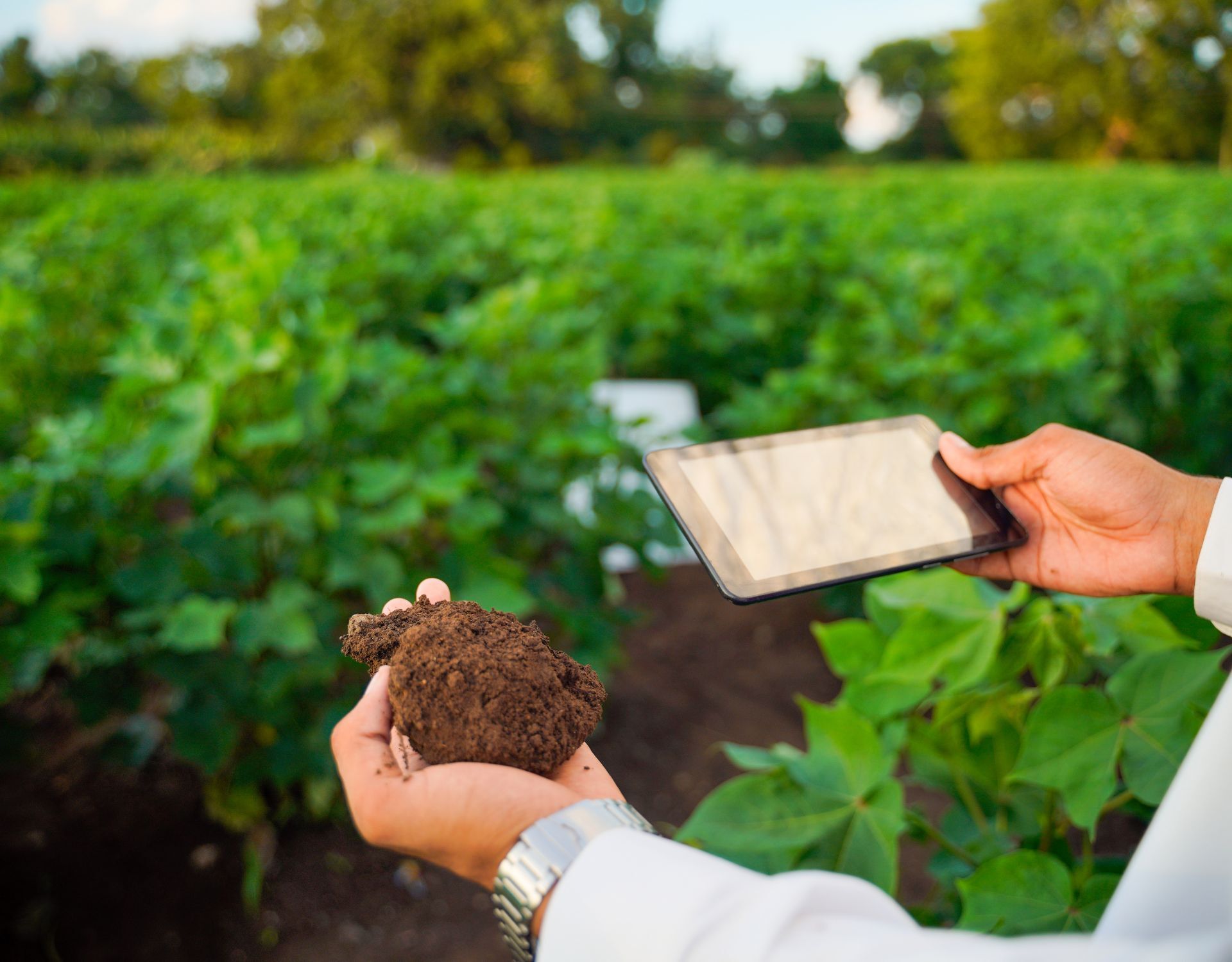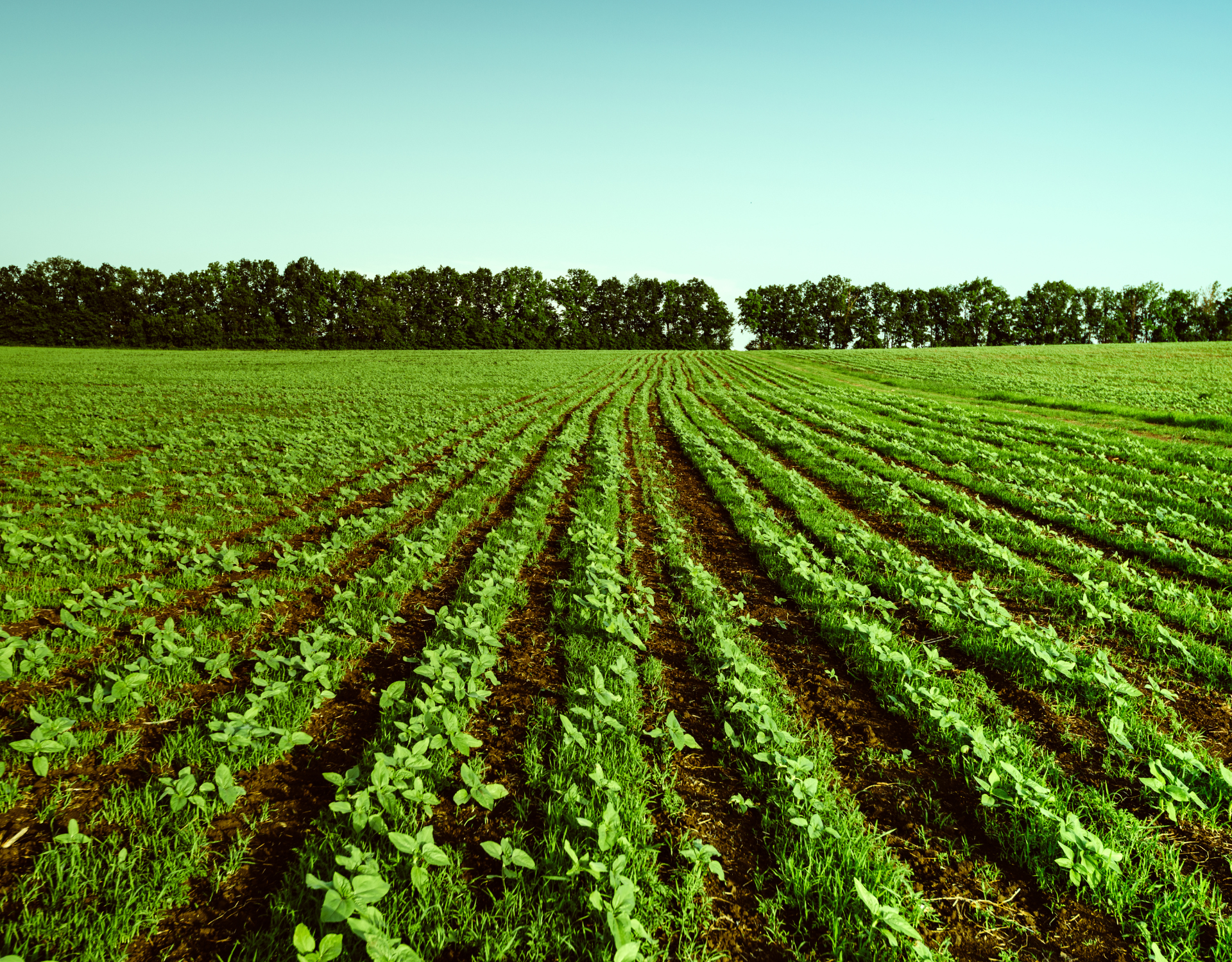Choosing the Right Biologicals Through Precision Agriculture
Biological soil analysis serves as a vital tool for growers and farmers, offering crucial insights into their soil's unique characteristics and functions. This informed analysis facilitates the selection of the right biologicals, optimizing soil management strategies to improve crop yields and foster overall soil health in agricultural practices.

- Chapter 1: Introduction
- Chapter 2: What are biologicals?
- Chapter 3: Biological products - the 3 you should know about
- Chapter 4: What are biostimulants?
- Chapter 5: What are biocontrols?
- Chapter 6: What are biofertilizers?
- Chapter 7: Don’t choose a farm fertility plan before doing this
- Chapter 8: BeCrop® Farm: your agronomic decision-making tool
- Chapter 9: Conclusions
- Chapter 10: Key takeaways
Introduction
It’s undeniable: biological products are the next frontier of agriculture.
Yet, they remain mysterious. Products that perform outstandingly in some areas – sometimes boasting 10-15% yield bumps — fail in others. This, coupled with the belief that biologicals are a ‘silver bullet’ has led to mistrust in the market. Needless to say, this is damaging to advisors and retailers, many of whom have farmers’ best interests in mind.
Biological products are full of potential, but how do you choose the one that's best suited for your field? The answer is simple: through soil analysis.
To reap the benefits of biological products as efficiently as possible, you must understand your soil. Soil analysis guarantees a scientifically validated understanding that provides clarity as farmers, advisors, and retailers navigate this crowded market.
What are biologicals?
Biological products are substances derived from living organisms, with applications ranging from agriculture to medicine. In agriculture, these products are increasingly utilized to increase yield, manage pests, and enhance soil fertility.
Biological products offer a great transition and catalyst for companies adopting regenerative agriculture programs. In our recent webinar, Director of Global Accounts and Soil Health expert Meri Lillia Mullins shared a great example. In the 3 years that cover crops may not yield a sufficient return on investment (ROI), incorporating biological products offers a strategic avenue to enhance ROI. Essentially, during this interim period, biological products can step in to increase profitability and productivity.
Conversely, by focusing just on tillage and cover crops, regenerative agriculture programs miss an opportunity to maximize returns.
Biological products – the 3 you should know about
Biological products can be broadly categorized into three main groups: biostimulants, biocontrols, and biofertility. Each of these categories plays a unique and critical role in the promotion of plant growth, health, and yield, leveraging the power of nature to enhance agricultural productivity.
Biostimulants comprise a wide range of substances and microorganisms that enhance plant growth by improving nutrient efficiency, tolerance to abiotic stress, and overall crop quality. Biocontrols, on the other hand, are biological agents used to control pests, diseases, and weeds that threaten crop health and productivity. Biofertility products enhance soil fertility and plant nutrition through the action of microorganisms such as bacteria, fungi, and other soil organisms. These products improve nutrient cycling and availability, facilitating the efficient uptake of essential nutrients by plants.
What are biostimulants?
Biostimulants are designed to enhance plant growth and stress tolerance. They differ from fertilizers in that they do not provide direct nutrition to plants, but instead they improve microbe populations that cycle nutrients while also stimulating natural processes to improve plant health and performance.
Each kind performs a specific function, whether it be to enhance nutrient uptake, improve stress tolerance, or promote plant defenses against pathogens.
There are many types out there, but to name a few:
By tailoring biostimulant applications to address specific soil health and crop production challenges, farmers can optimize their ROI and maximize crop yields. This deep understanding of a soil’s biology, of course, is only attainable through advanced testing.
What are biocontrols?
Biocontrol agents are living organisms or naturally occurring substances derived from living organisms that control pests, diseases, and weeds in agriculture. They work by either preying on diseases directly or by providing beneficial organisms and plant health promoters to increase disease resilience.
Applying biocontrols without a full understanding of the soil can have harmful consequences:
- Disruption of beneficial organisms
- Imbalance in the ecosystem
- Development of resistance
Different strains and species perform uniquely under specific conditions, so it’s essential to know what your soil needs before applying biocontrols to your field.
Our philosophy is simple: test, don’t guess.
Want to learn why your plants aren’t uptaking the nutrients in the soil? It could be soil biology! Order your BeCrop Test today >>
Supporting content
What are biofertilizers?
Popular in sustainable agriculture, biofertilizers are biological agents containing living microorganisms. They enhance soil fertility and promote plant growth by facilitating nutrient availability, improving soil structure, and fostering beneficial interactions between plants and soil microbiota.
Nitrogen-fixing biofertilizers
These contain nitrogen-fixing bacteria that convert atmospheric nitrogen into a form that plants can utilize. For example:
- Rhizobia bacteria
- Cyanobacteria
Phosphorus-solubilizing biofertilizers
These use bacteria and fungi that solubilize insoluble phosphorus compounds in the soil, making phosphorus more accessible to plants. For example:
- Bacillus
- Pseudomonas
- Mycorrhizal fungi
Plant growth-promoting rhizobacteria (PGPR)
PGPR colonizes the rhizosphere (the soil region directly influenced by plant roots) and promotes plant growth through various mechanisms, including nitrogen fixation and phosphorus solubilization.
Don’t choose a farm fertility plan before doing this
In our pursuit of determining what products move the needle for farmers, we’ve discovered that understanding the soil’s biology is essential to choosing the most effective biological product.
Biological soil tests equip you with a wealth of information, targeting:
- Soil health (disease risk, hormone production, stress adaptation)
- Soil quality (biodiversity, functionality, resilience)
- Nutrition (microbial mobilization of specific compounds)
With soil testing – instead of taking a wild stab at what (in theory) could work – agronomists and growers have real data that provides data-driven insights to guide their decision-making.
Want to learn more about the different types of soil testing? Check out the different types of soil testing in our Complete Guide to Soil Testing >>
BeCrop® Farm: your agronomic decision-making tool
With the market becoming more crowded by the day, we understand the increasing complexity of choosing the right biological product. That’s why we not only provide boots-on-the-ground data on soil biology, we also provide farmers targeted recommendations on which product is the best fit for the soil’s needs as well as which management practices would be best to implement based on the soil health metrics, improving correct product placement and maximizing profits.
BeCrop® Farm offers detailed soil microbiome DNA analysis and tailored recommendations to agricultural retailers, advisors, and farmers. It delivers precise, comprehensive field-level insights, facilitating continuous and straightforward analysis across individual fields, entire farming operations, and client portfolios.BeCrop® Farm is the world's first digital platform for precision agriculture designed to maximize the potential of every acre. This innovative solution evaluates over 1,000 parameters, including complex biological data and environmental factors, to provide precise input recommendations and tailored agronomic insights on soil health, disease risk, and management practices.
Biome Makers' BeCrop® technology is trusted by 21,000+ farmers, in 56+ countries and used for more than 201 crop types worldwide!
Key features of BeCrop® Farm include:
- Product Recommendations: Tailored, brand-agnostic, data-driven recommendations for biological inputs.
- Hi-Definition Maps: Biological soil functionality metrics pinpointing areas needing attention at the field level.
- Agronomic Insights: Turns biological analysis into clear, actionable guidance on which management practices to implement.
- User-Friendly Digital Experience: A retail and farmer-focused digital platform with intuitive analysis tools.
One of our favorite parts about the BeCrop® Farm digital portal is the interactive mapping feature that offers a clear pathway to tackle the most urgent risks.
It also aligns with the primary classes of biological products, so as an agronomist or grower, you can easily identify deficiencies in your soil and make informed decisions about which products to use.
Conclusions
The categorization of biological products plays a crucial role in making informed decisions in agricultural practices. Biostimulants, biocontrols, and biofertility are the three main categories, each serving a distinct purpose in influencing plant growth.
To enjoy the economic benefits of biological products, understanding the soil's biology is crucial.
Supporting content
Key Takeaways
- Soil analysis is crucial for determining the best biological product for a field, providing scientifically validated data and clarity for farmers, advisors, and retailers navigating the market.
- Biological products are used in agriculture to increase yield, manage pests, and enhance soil fertility – they are categorized into biostimulants, biocontrols, and biofertility, each serving a distinct purpose.
BeCrop® Farm is the most innovative precision agriculture tool offering targeted insights and reliable, data-supported recommendations on which product category best fits and instructs where in the field to apply. It also provides soil insights into different management practices.
Supporting content
Contributors:

Gus Plamann
Agronomist

Joy Youwakim
Agronomist

Jamie Nix
Content Writer
From Our Blog
Stay up to date with what is new in our industry, learn more about the upcoming products and events.

Why Biological Soil Intelligence Is Becoming Essential for Ag Retailers

Early Warnings, Better Outcomes with Biological Testing
.jpg)
.png?width=1600&height=762&name=unnamed%20(8).png)
.png?width=1600&height=769&name=unnamed%20(9).png)